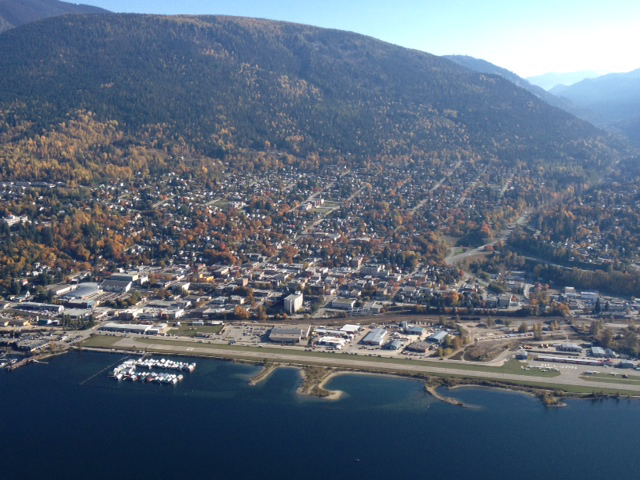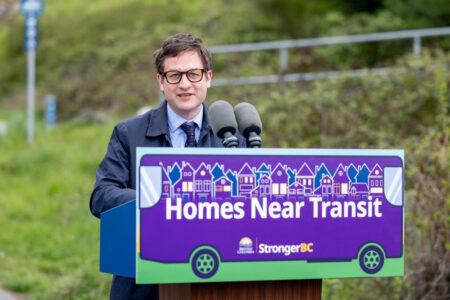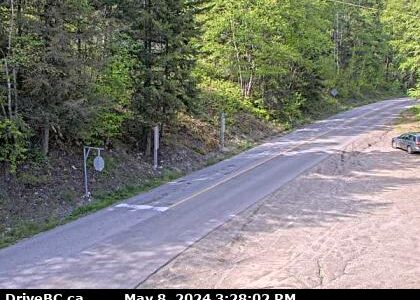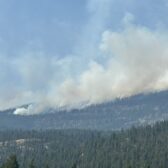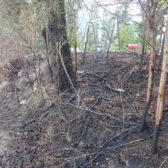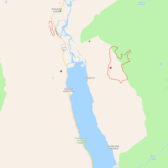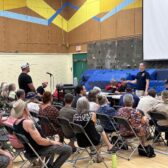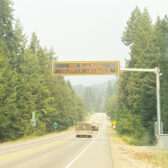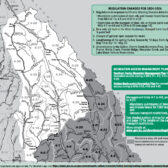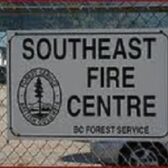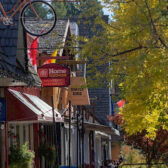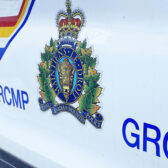Property taxes set to rise in ‘status quo’ budget as city delivers its proposed 2016 budget
The city’s budget will be “status quo” but with a caveat as city administration delivered a preliminary look at the municipality’s next budget offering last Thursday.
Property taxes will rise at least 1.75 per cent for 2016, along with other utility increases, the city’s chief financial officer Colin McClure said in a budget open house and question period at the Nelson and District Chamber of Commerce building Thursday evening.
Overall, in addition to the property tax increase ($26 annual increase, based on a $328,814 home), city council has formulated a three per cent increase ($15 annual increase) in water rates per home, as well as two per cent ($10 annual increase) in sanitary sewer rates for a home.
There will also be a 3.8 per cent increase in Nelson Hydro rates effective April 1 (a 2.6 per cent annual increase). There will be no change in garbage and recycling fees since the city is currently receiving $140,000 annually from Multi-Material B.C. to collect recycling, enough to fund the operation.
Not including the power rate increase, the city’s residential taxpayers will pay an average increase of $51 to the city — rising from $2,557 (2015 actual) to $2,608 (2016 proposed).
Businesses in the city — which make up 25 per cent of the tax role — will see an average increase of $236 per year. Based on a $1 million assessed value commercial restaurant, taxes rise from $12,169 (2015 actual) to $12,404 (2016 proposed).
The increase does not include possible tax increases assessed by the regional district, the health region, the board of education and the province which the city also collects for.
Even still, the tax increase could jump if the city is on the hook for a Nelson Police Department (NPD) budget increase, which would bump the increase by four per cent.
The police department asked for an increase of $310,000 for 2016 — for two new officers and an administrative staff person — and the final decision from the provincial director of police services has now been delivered.
Even though Nelson city council and the police board have received the decision of the director of Police Services, Clayton Pecknold, details will be released once both parties have had the opportunity to review the decision, said Mayor Deb Kozak.
The police increase aside, the 1.75 per cent proposed increase is “in line with city council’s strategic priority to keep property tax increases at inflationary levels and as low as possible while dealing with the ever increasing operational costs of the city,” said Kozak.
The increase in property taxes will cover inflationary and expected collective agreement wage settlements.
Kozak noted that the city has implemented efficiencies that include management restructuring coupled with some other revenue opportunities to keep the net budgeted operational expense deficiency to a minimum.
“However, as the tax revenue to operational expenses is at a two-to-one ratio, the city needs tax revenue to increase by 1.75 per cent to cover the under one per cent net increase to budgeted operations for 2016,” she said.
The city will need $131,250 to cover the shortfall.
McClure said city council endeavoured to provide the same level of service for 2016 as it had in 2015 in delivering its status quo budget.
“So no big items (were) cut from the budget, however, some management restructuring has taken place,” he said.
McClure said the NPD has not replaced the deputy chief position but has added a sergeant “which allows for some operational savings.”
All city operational revenue is close to $42 million, with total operational expenses around $37 million.
The general fund operational expense is budgeted at $17.2 million in 2016, funded by $9.2M in taxation (approximately a two-to-one ratio). A one per cent increase in taxation produces about $75,000 to cover operational expenditures.
The dividend from Nelson Hydro to city operations is equal to a 36 per cent tax increase. Nelson is the only municipality in Western Canada that generates and distributes electricity.
In 2016 Nelson Hydro is expected to contribute $2.7 million to city operations, $568,000 to the water licence reserve, $90,000 to the Nelson and District Community Complex and a share of the city administration costs.
New market construction taxation revenue generation for 2016 is expected to be $98,000, while the Nelson Hydro dividend to operations increased by $100,000.
The 2016 city capital budget is $12.6 million — including general, water, sewer and Nelson Hydro.
A total of $7.1 million will be spent on completing the Mountain Station UV project, continuation of CIPP relining and hydro distribution system upgrades.
General capital spending of $5.5 million will go towards general paving and park improvements, building improvements (roof replacement), IT (network cabling, fiber lines, virtual desktops) and vehicle and equipment purchases.
Non-utility statutory reserves — set up through bylaw for a specific purpose — at the end of 2015 was approximately $6.2 million. Appropriated surplus at the end of 2014 was $3.4 million.
The city still carries $18.1 million in general and utility debt, with $9.6 million in general debt. Only $1.26 million is supported through general taxation.



